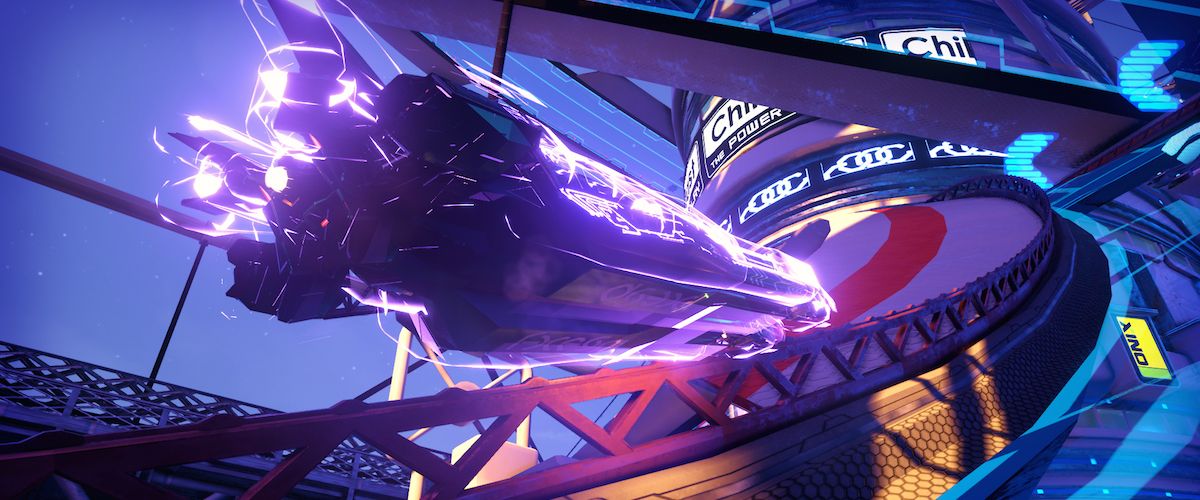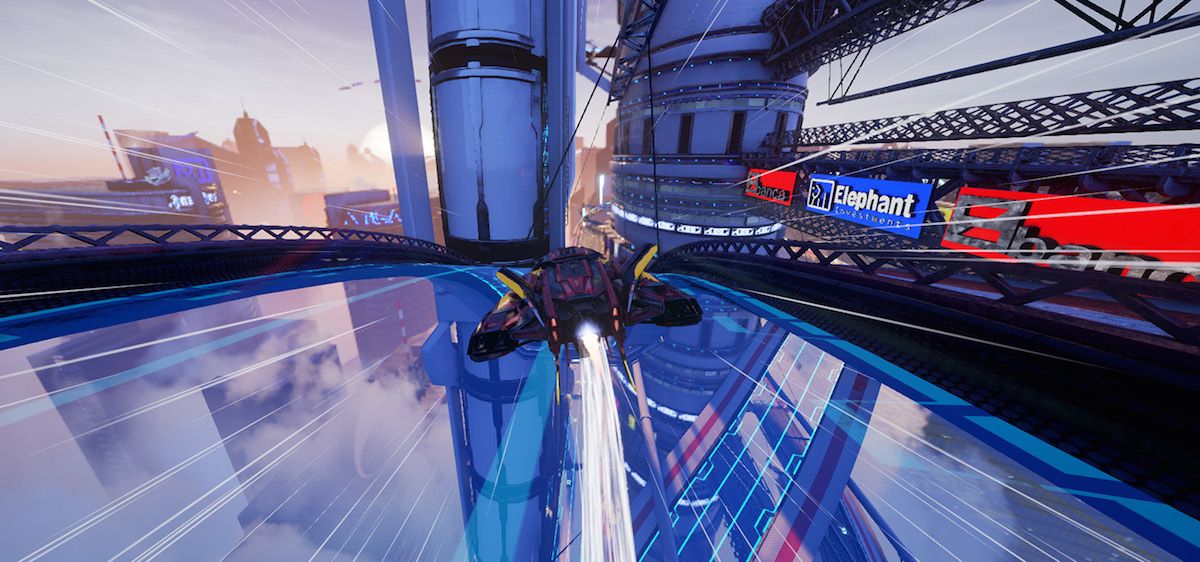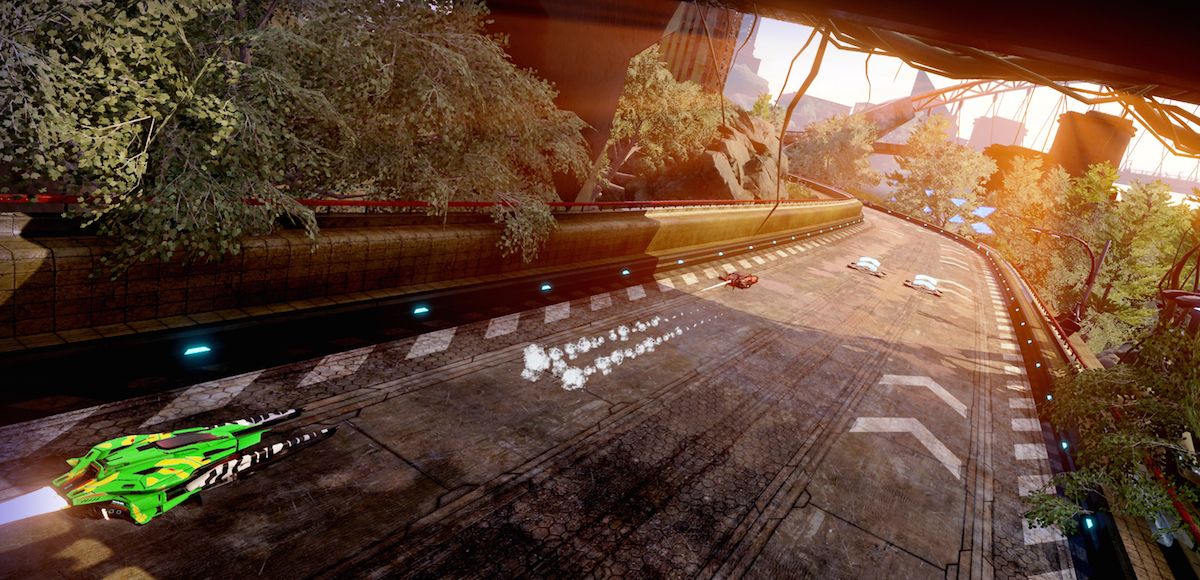It’s a good time to be a racing fan. Further still, it’s a great time to be a futuristic racing fan. After years and years of a period wherein racers were merely simulations of the real — even if some were a little more arcade-like lenient on both the look and the feel — a trip back to the future was looking that lot less likelier the more the years rolled on. It was the present that ruled the roost; not that some present-day set racers couldn't hit the highs the genre can so clearly reach. Burnout 3 is still a thoroughly enjoyable ride if not a highly-polished looker, if you'll pardon a little personal sway, but for those keen to see the speedometer reach well in excess of a few hundred kilometres -- rather than the solitary one hundred -- there's been little [blistering] cheer. At least, not until around a year ago. It was at that point that everything, it felt, seemed to change.
There’s a resurgence brewing up in the smaller corners of the video game development community. A desire to return to our physical past in the form of the imagined future; a sci-fi leaning imagination where racers were adorned more with hovering vehicles, twisting-turning rollercoaster-styled tracks and let’s not forget, some pretty good soundtracks. It’s a passing-of-the-torch moment whether you want to see it that way or not; while Nintendo remain adamant fans don’t want to see Captain Falcon back in the series he originated from — if not, it can be argued, the game(s) that made him popular — Sony, if technically active, are but testing the commercially-defined waters with a HD remaster of their beloved Wipeout series; Microsoft, meanwhile, more than happy to keep Forza chugging away on an annual basis. It’s the turn (and perhaps, the responsibility) then of the independent scene to help kickstart another wave of [here’s hoping] glorious futuristic racers and it's safe to assume things have already gotten off to a good start.
Shin’en Multimedia’s Fast Racing Neo — released on Wii U in 2015 and the recently-released remix, Fast RMX, hitting the Switch on the console's launch day — not to mention 34BigThings' Redout (released last year on PC and soon to be making its way not only to Switch, but other consoles too) were perhaps the first real signs that the sub-genre, niche it may be, could still very much achieve a grand showcase of acclaim from fans and critics alike. When you think about it, there’s really not much to change up or change out when it comes to making an enjoyable racer. Or putting it another way: there's very little you can actually ruin in a play-style of this calibre and emotive possibility. That's not to say you can't include further mechanics that only sweeten the deal, flavouring the experience to make it objectively more successful. Fast's polarity-shifting controls or Redout's [semi-titular] Redout/Blackout system -- rewarding or otherwise punishing you that extra bit on how you actually handle your vehicle -- were the kind of small inclusions that made such titles more than just a series of pretty homages to child-like glee.
And just like buses, the racers just keep on coming with two titles (very different from one another in both visuals and controls) that despite their statuses at present -- one in Early Access, another sailing towards an affirmative release date -- actually shed light on an aspect of racers even I did not consider. Or more specifically: did not consider could still be viable in today's age. That the future-racer doesn't have to be about the races (literally, the very tracks) themselves. Formula Fusion, the part-nostalgic voyage by developers R8 Games may well make the biggest nods to Wipeout -- aided in significant parts by the fact famed creatives The Designers Republic, the team behind the Wipeout series' uniquely slick artwork and promotional material, are helping in the visual direction and branding -- but its content isn't simply a retread of what's come before.
True, the addition of weapon pick-up's -- one of the renowned Playstation IP's most notable deviations from Nintendo's own speed-savvy franchise -- certainly gives that familiarity a lot more obvious showing. As does the focus on a skill-based racing experience. Less about the roller-coaster jolt in one's peripherals and more the need to analyse the actual track in order to successfully coast, glide and slide one's vehicle through the sharp and narrow windings on show. But Formula Fusion, as does the studio behind it, wants to go beyond just some satisfactory reminder of a bygone era by putting more of the customization and modification into the player's hands. Each vehicle, though initially comes bundled with a predetermined mix of perks, strengths and weaknesses for its very racing attributes (speed, defense, acceleration etc), it also grants players the ability to add additional buffs and even choose which weapons they bring into the fray to begin with.
On top of the inclusion of visual modifiers such as body coloring and decals -- not to mention a replay feature that allows users to capture screenshots from their previous races yet do so from a vast array of camera angles and effects on show -- it's the kind of optional features you can't help but throw modest appreciation towards the developers over. These are the modes that make you think "they didn't have to" and yet here they are -- modes that aren't fundamental or otherwise comprise the bulk of the game's content, yet do more to emphasise select studio's clear passion at converting the anti-grav game setting into a fully-fledged package this sub-genre sorely needs and deserves to return to. But Formula Fusion, in its current build, has been a slow and steady process having skated the Early Access region for nearly two years now -- steadily fine-tuning and adding to its gameplay alone to not so much reach the same heights of those late 90's offerings, but for obvious reasons, to soar past it in standard 2017 here-and-now fashion. R8 Games' past experience with the genre might well be a bonus, but that's not to say it gives the developers a free pass. Nevertheless, the AG racer -- as they refer to it -- has never been in as promising a position as it is now.



